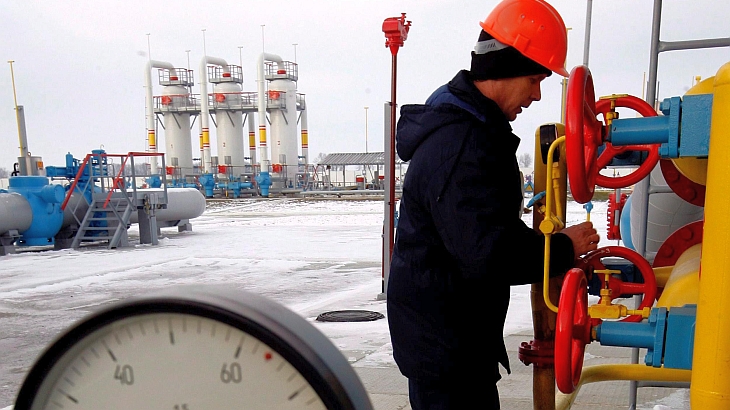Russian ambassador to the EU Vladimir Chizhov said that Ukraine is counting on “international support” to pay off its $3.1 billion dollar (€2.43 billion) debt to Gazprom by the end of the month.
Speaking to EurActiv in an exclusive interview, Chizhov said that at the meeting in Milan on 17 December with Russian President Vladimir Putin and his Ukrainian counterpart Petro Poroshenko, an agreement was reached for an “intermediary price” of $385 per thousand cubic metres (tcm) for Russian gas to be sold to Ukraine during the winter.
Moscow cut off gas supplies to Ukraine in June after failing to secure a deal on the unpaid bills and price. According to some estimates, the country will be five billion cubic metres (tcm) short of its needs during winter.
Without fresh gas imports from Russia, Ukraine may experience a humanitarian catastrophe, the incoming EU foreign affairs chief Federica Mogherini recently warned.
Moscow has also warned that if Kyiv steals Russian gas transiting through its territory to Western Europe, it would cut off gas supplies through Ukraine.
Chihzov said that, according to the understanding reached in Milan, Ukraine will pay $385 per tcm until the end of March. Gazprom charges Ukraine $485. Due to disagreement over the pricing the two sides have taken the issue to the Stockholm arbitration tribunal, an institution for international arbitration affiliated with the Chamber of Commerce of Sweden.
Another element of the agreement reached in Milan is that Ukraine pays Gazprom $3.1 billion before the end of this month.
This sum, as Chizhov explained, includes arrears from November and December of last year and those of the second quarter of this year. He said that the sum was uncontested.
“I understand that the only problem is for the Ukrainian side to actually find the money, and they are counting on international support, IMF and other sources”, the diplomat said.
The European Commission is hosting yet another meeting of the ministers of energy of Ukraine and Russia, aimed at helping to solve the disputes and avoid a repetition of the gas crisis of January 2009 that left part of the EU and of the Western Balkans in the cold.
